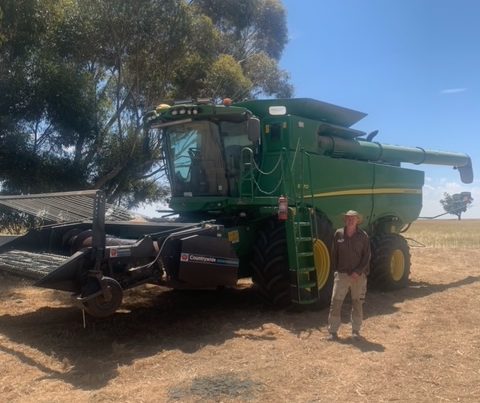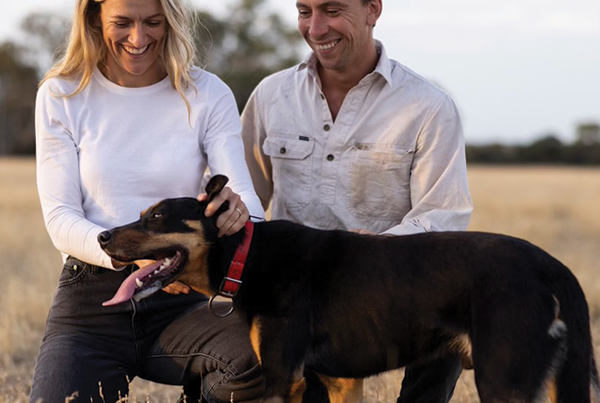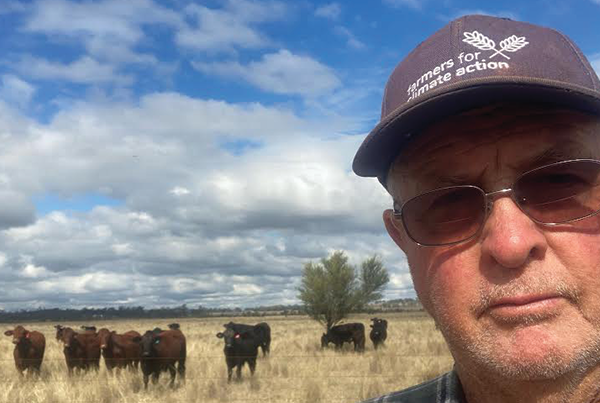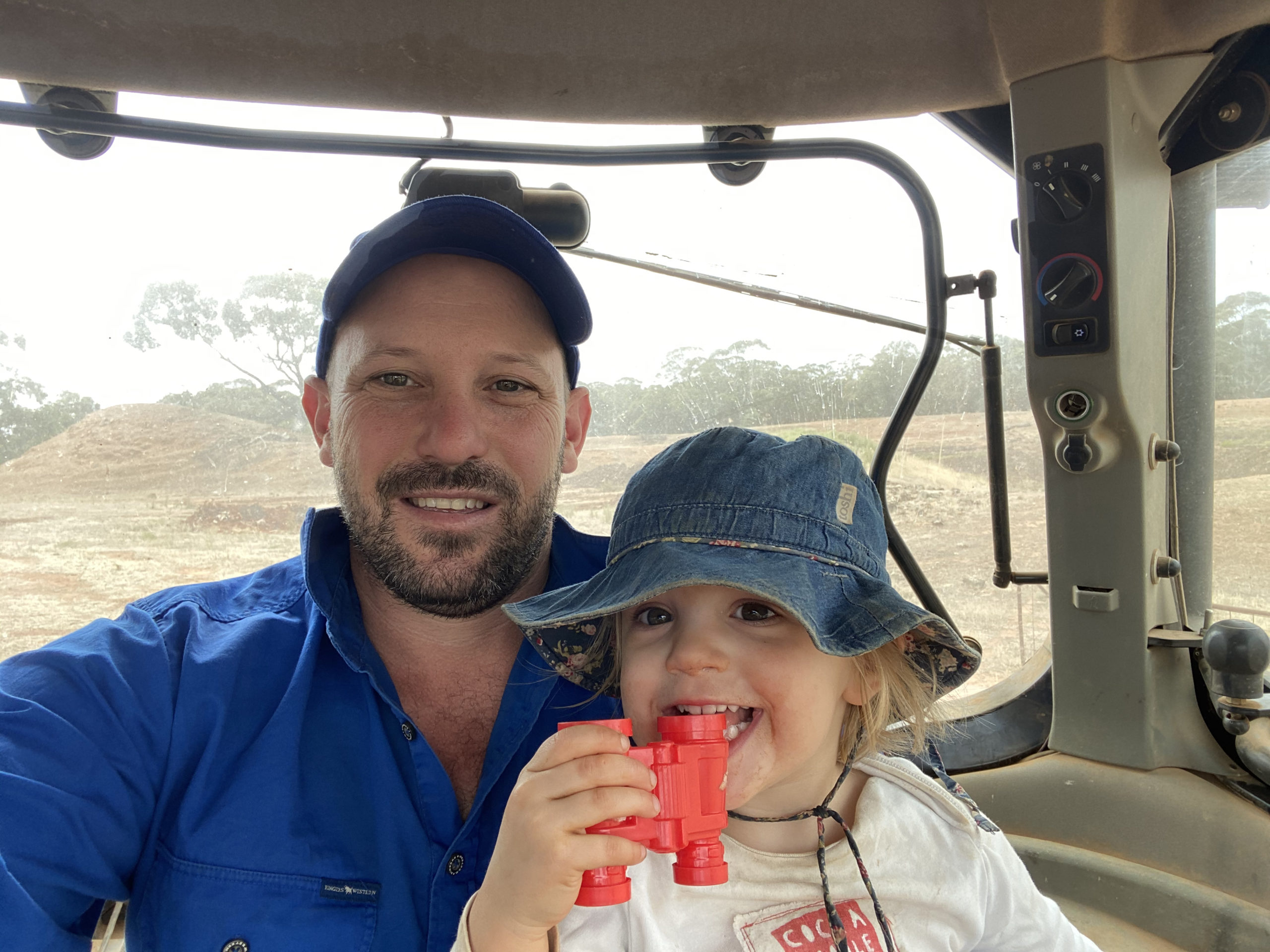
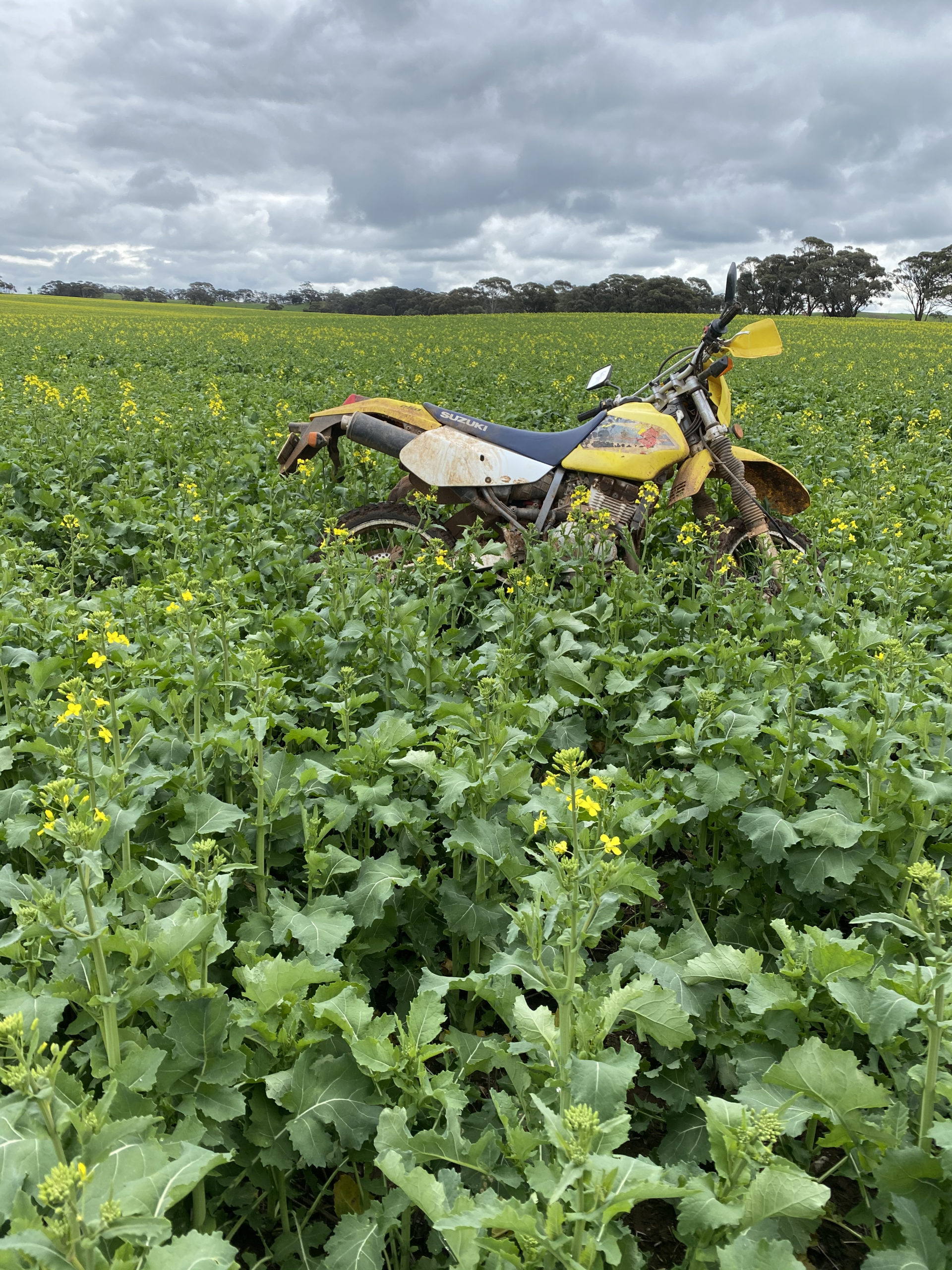
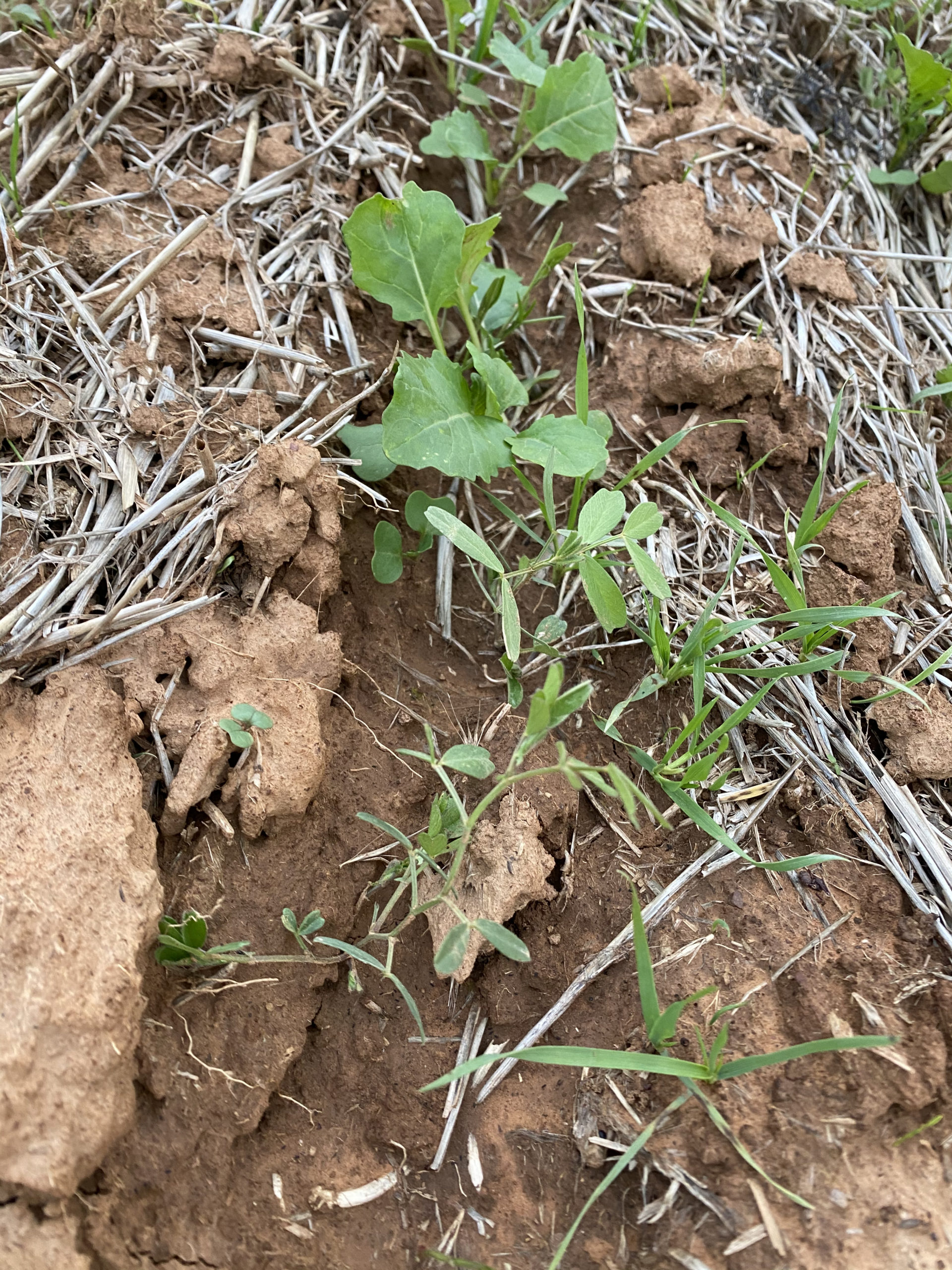
At a glance
Who: Jarred Tilley
What: Mixed Farmer
Where: Kapunda and Booborowie, South Australia
Can you tell us about your property:
We are mixed farmers at Kapunda and Booborowie in South Australia’s Lower and Mid North regions. It is a family business with my brother Leith and father Robert. In all we crop about 2,200 ha of wheat, barley, export hay, canola and beans, and run 2,800 merino ewes that are mated to merino and white suffolk rams.
What first got you thinking about climate change?
I can’t remember specifically but it would only be in the last couple of years. Some good farmers I know started showing leadership in trying to make it a normal thing to talk about was the moment I decided to get myself more educated. Since then I have read a couple of books, tried to read as many objective articles as possible and have been to a couple of climate specific forums, including the FCA Fellowship program.
How has climate change impacted your business?
Like any farming business, climate events have always impacted our business. Poor autumn breaks, frost, hail, not enough rain, too much rain, damaging winds and fire ban days have always been a problem. It’s just that they seem to be not only becoming more frequent but more severe. I definitely agree with the notion that it’s not the waves in the sea that necessarily levels your child’s sandcastle, it’s the gradually rising tide that does the damage.
What are some of the climate-smart strategies you’ve been employing and how successful have they been?
Ultimately we have a best management focus to try and grow as much produce as possible with as little inputs as possible. Our private agronomy consultant is very important to achieving this with his independent thinking on rates and responsible use of inputs. We also run a very robust production system that rotates our crop types for pest and nutritional management, and most importantly allows us to sow our crops as early as possible. Like many farmers we have had success in implementing harvest weed seed control measures, for us with the use of a chaff cart behind the header. This reduces the amount of weeds that germinate the following year in a low input manner and allows us to bale the piles of byproduct which we use as part of the ration for containment feeding of sheep in the autumn. In the last three years we have also put a lot of effort into fencing off less productive cropping areas to make them permanent pastures for our sheep, mainly to reduce inputs. Individually none of these measures are game changers, but together they all play a part of being a sustainable producer. Benchmarking of our inputs over the last ten years has shown our system has been successful especially considering we farm in a high input area, with on average our chemical expenses under $15/t of wheat grown and fertiliser under $25/t of wheat grown.
The sheep enterprise is run with a similar philosophy. We pregnancy test our ewes that allows us to sell any that aren’t pregnant and better manage any that are giving birth to multiples, increasing our production per ewe. We also invest in sheep genetics for production, with the amount of wool cut now allowing us to shear twice a year instead of the traditional annual shearing. The feed we grow is of a higher quality and typically multispecies with some legumes to complement the cropping program by reducing nitrogen fertiliser requirements. Where possible we try to maintain ground cover which has been greatly improved by sowing feed as early as possible and with the use of containment feeding. Hopefully in coming years we will be able to lift lamb growth rates even more to allow us to not only sell them earlier but even start breeding younger. All of this helps in reducing the methane produced from our sheep per unit of production.
Ultimately a lot of these measures are just best practices that most farmers are implementing to maintain their viability as a business let alone being climate smart. Farmers, advisors and researchers should be congratulated for what they have achieved. As a business manager I want to be carbon neutral as soon as economically viable, allowing us to maintain market access when demand for our produce requires it. A big step for our business will be in February 2022 when we are getting together with a group of farmers to do our first carbon audit. This process should give us more direction where to allocate resources and time, and I look forward to working through the options with other like-minded farmers.
Do you use renewable energy on your farm? What are the benefits?
Unfortunately not, just limited to solar pumps and windmills. Both farms have looked into solar options but each place requires infrastructure work done on our end to allow this. Hopefully we will get onto it soon but like many farmers we are limited what we can do by being on SWER power lines. I got a quote on getting off grid this year but the price and warranty on batteries was cost prohibited.
If you could send a message about climate change to the Federal Government what would it be?
In six generations of our family farming in Australia, there has always been anxiety caused by making a living working with a variable climate. No farmer wants the following generations to have it any worse. Now is the time to act for the next six generations.



